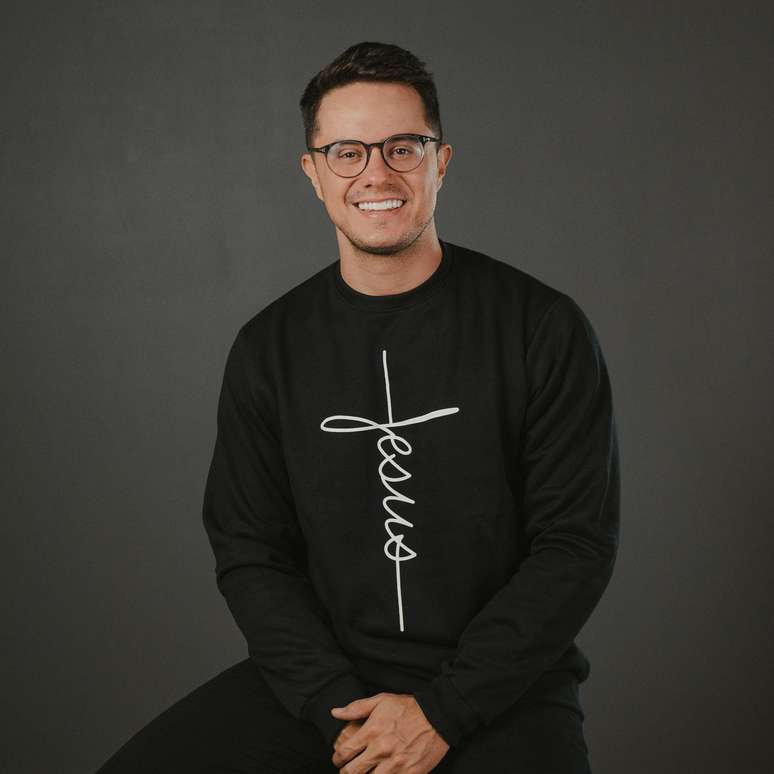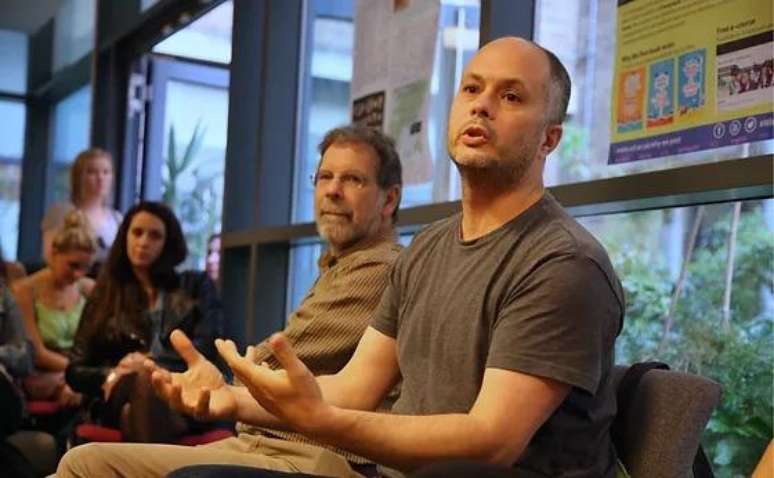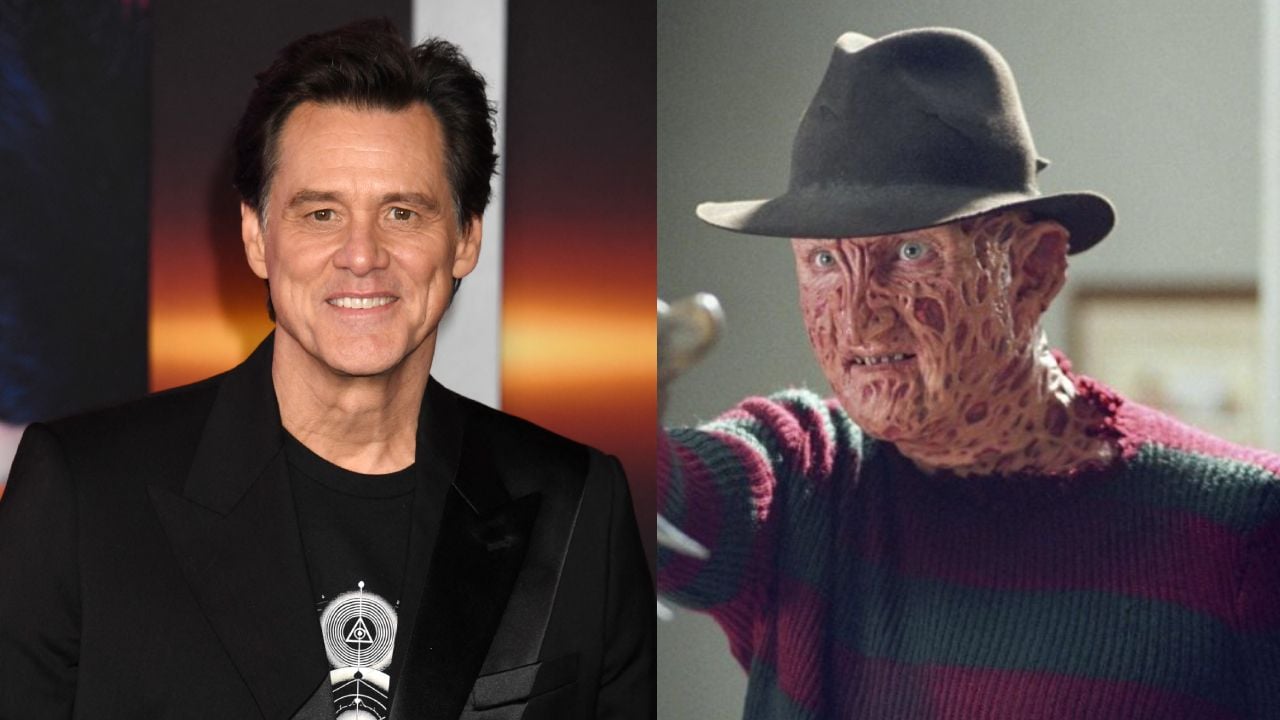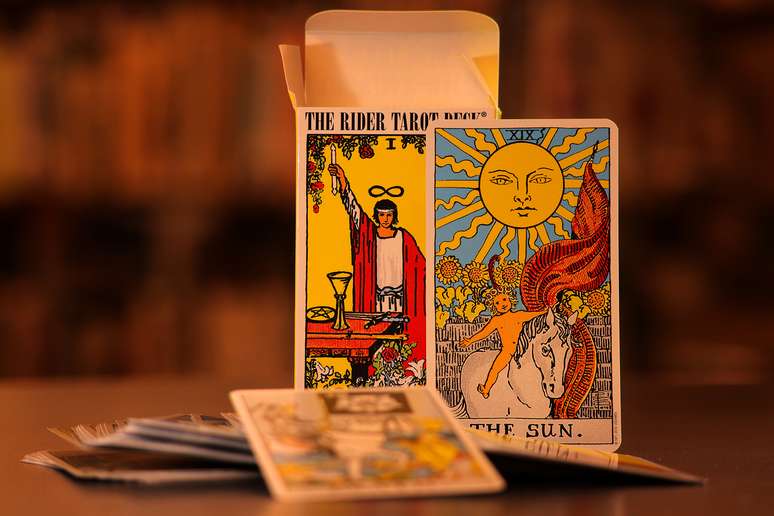The study shows that, in addition to theological issues, new evangelical leaders talk about topics such as “goals” and “overcoming.”
The writer Tiago Brunet calls himself a “leader coach”, “mentor of great personalities” and “people specialist”. He has his own training method and sells courses and conferences on leadership and self-improvement to teach people how to have a “life of peace and prosperity.” Residing in Florida, United States, he asks R $ 2,977 reais for the three-day in-person course in Sao Paulo.
But it’s not a trainer Typical: Tiago is evangelical and his training method is entirely based on Christian religious principles. On his website, the consultant describes his course as “the first based 100% on ancient principles.”
One of the three pillars of his method, for example, revolves around faith and how to have “access to eternal life”, how to “please God” and “have an intimate relationship with God”.
With 6.3 million followers, Tiago is part of a group of evangelical influencers who differentiate themselves from other religious people famous on social media because they focus on topics that could easily come out of a self-help book.
They are the “evangelical coaches”: YouTubers, singers and pastors with essentially motivational preaching and content.
Many don’t call themselves “coaches” or offer paid courses, but they frequently use words like “self-knowledge,” “goals,” and “overcome.”
This niche within the Christian universe on social networks is described by the Radar Evangélico survey, carried out by the consultancy firm Nosotros, which mapped the 44 major evangelical influencers in Brazil.
Many of them are practically unknown to non-Protestants, explains anthropologist Juliano Spyer, coordinator of the study and founder of Nosotros; but great celebrities from the evangelical world. They amass followers, mobilize the attention of religious people and discuss topics that occupy the minds of millions of Brazilians.
According to research, about 30% of them have content that places them in the “evangelical coaches” group.
There are also preachers who the analysis classifies as more political. They promote right-wing and conservative names and lobby to influence public policies: they are 25% of the largest producers of Protestant content.
And the majority (45%) are devotionals, which talk about the religion itself, values and prayers. This group is dominated by “gospel singers who are present in many churches performing hymns and praise,” the study says.
To arrive at this division, the researchers used a method called Social Network Analysis (ARS), which combines mathematics, sociology and data science.
Data from key evangelical influencers was fed into a program that maps connections between them and groups where people are densely interconnected, Spyer explains.
Based on the findings, the researchers analyzed what exists in common between religious people of each group, that is, which themes are prevalent and common among them.

Specialization
One of the biggest names cited in the study is YouTuber Deive Leonardo, who has 14.7 million followers on his most followed social network, comparable to the number of followers of economist and former BBB member Gil do Vigor, for example.
Unlike Tiago Brunet, Deive Leonardo does not define himself as a coach and presents himself only as a religious preacher. However, Radar Evangélico’s content analysis of him places him in the same group as Tiago.
Deive preaches on topics such as anxiety, emotional control, and decision-making.
In his channel’s opening video, he talks about how to “embrace every step” and “cultivate a growth mindset,” how to “accept failures as part of the journey,” and “exercise self-knowledge.”
This type of motivational vocabulary is not foreign to the religious environment, explains anthropologist Juliano Spyer, of nosotros. The novelty is a kind of “specialization” in this topic of overcoming.
“We already know the relationship between church and well-being, church and mental health. What we have noticed is a specialization in this motivational subject, as if it emerges from a more complex space, which is religion.”
“In other words, leaving aside the more theological issue of religion – for example the analysis of biblical verses – to choose a certain group of themes that specifically talk about ‘goals’ or improving the financial situation,” explains the researcher.
In your book Bring order to your life (Editora Vida), for example, Deive Leonardo offers the reader a way to organize all areas of their life and find purpose in just 31 days.
“Only those who do not give up change history. Only if you do not abandon your mission will you be remembered and leave a coherent legacy on this earth,” he writes in an excerpt from the book.
BBC Brasil tried to contact Deive Leonardo and Tiago Brunet, but received no response.

The similarity of the most motivational evangelical influencers to successful professional coaches is no coincidence. According to Spyer’s analysis, influencers who can be placed in the “coach” group, in general, are more connected to the business world and identified with prosperity theology.
Prosperity theology is a concept created by UFRJ professor Ricardo Mariano to talk about churches that, influenced by American televangelism, have at their core the association of religiosity with material achievements and lifestyle improvements.
“Sometimes, looking from the outside, people judge this group of churches very cruelly because of their relationship with money,” Spyer says. “But it is important to pay attention to what this prosperity looks like in a broad sense: prosperity in the family, in relationships between people; prosperity in the sense of having access to goods or services such as health plans, free time.”
In other words, acquiring wealth would be a consequence or some sort of reward for following a set of precepts and would also allow followers to be better Christians, according to the anthropologist.

Connections with other influencers
As in other “thematic” groups of influencers, women play a leading role among the producers of the most motivational content.
The actress Bruna Hamú (who was in the cast of Training), for example, gives “practical advice” on how to “find your purpose” and talks about “overcoming limitations.” The BBC attempted to contact her but received no response.
Other names mentioned in the search are the singers Gabriela Rocha and Priscilla Alcântara.
The study also highlights that, on social media, the most well-known Protestants outside of evangelical circles are not the most prominent in religious circles.
“When you think of evangelicals, people think of names like Silas Malafaia, Edir Macedo or Marco Feliciano as ‘spokesmen’ of the community. But our analysis shows that, in reality, these controversial figures are a bit isolated: they have many followers , but they are not interconnected with the larger communications network,” says Spyer.
Representative Marco Feliciano (PL-SP), for example, is quite “isolated”: he only has 12 links connecting his profile to the other 44 influencers with more than 2 million followers.
On the other hand, singer and pastor Eyshila has 66 connections with other influencers. Although she does not have the largest number of followers (4.4 million), her network of contacts places her in one of the most influential positions.
He is part of the Assembly of God Vitória em Cristo, the same church as Silas Malafaia, but has a very different profile on the networks than the pastor. Although she falls into the group of those who make political content, Eyshila has a “devotional” and diplomatic profile, avoiding polarization and controversy.
“The big surprise of the study is the size and influence of content producers like Deive Leonardo and Eyshila, who are huge within the evangelical community, but virtually unknown outside of it,” Spyer says.
This text was published in https://www.bbc.com/portuguese/articles/c4n879prr6do

Source: Terra
Rose James is a Gossipify movie and series reviewer known for her in-depth analysis and unique perspective on the latest releases. With a background in film studies, she provides engaging and informative reviews, and keeps readers up to date with industry trends and emerging talents.






